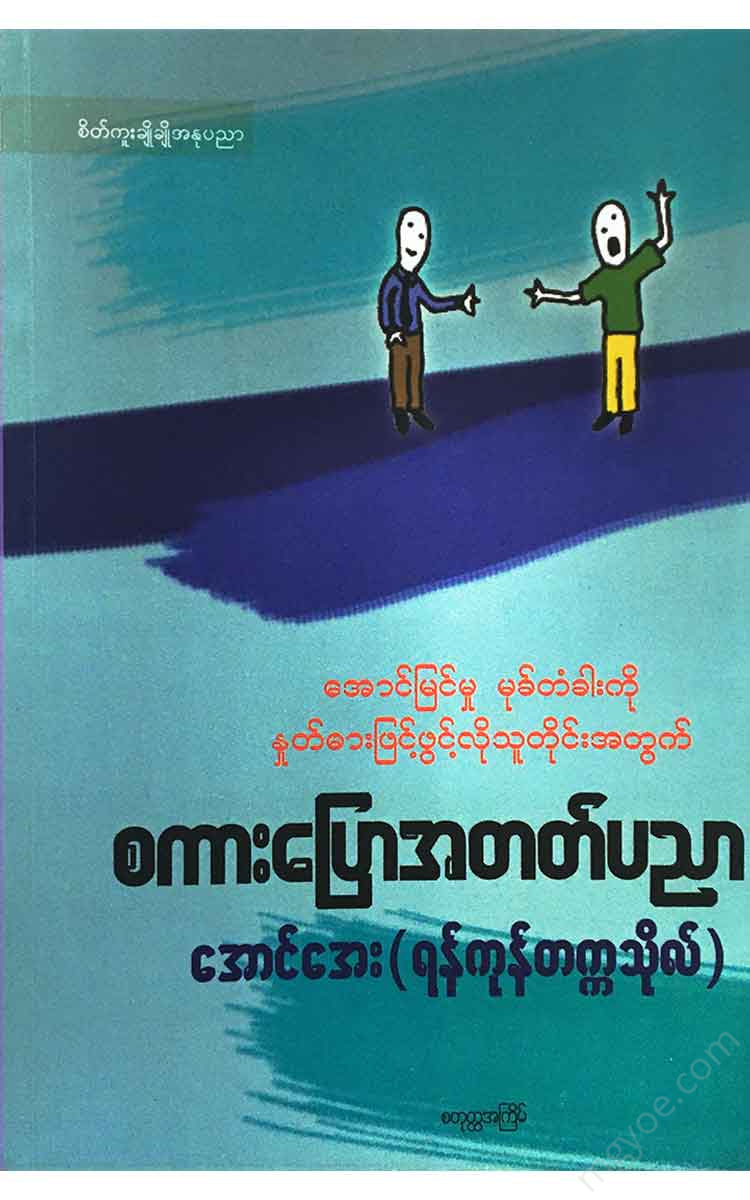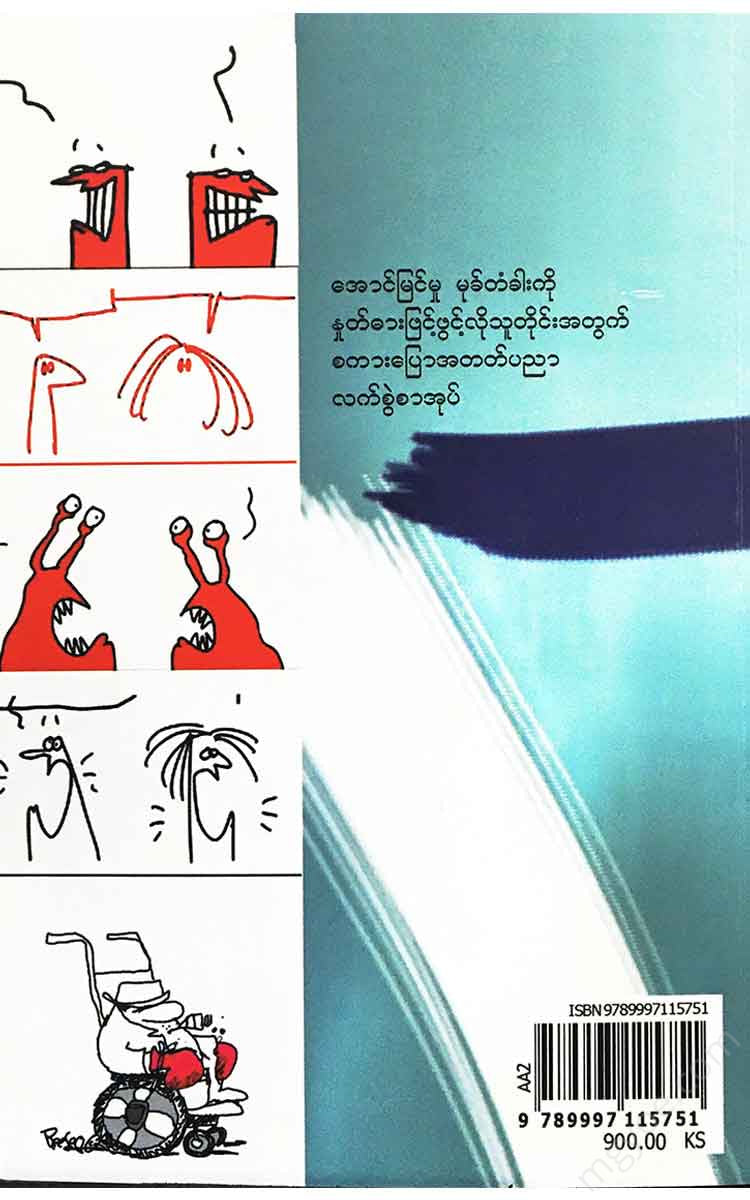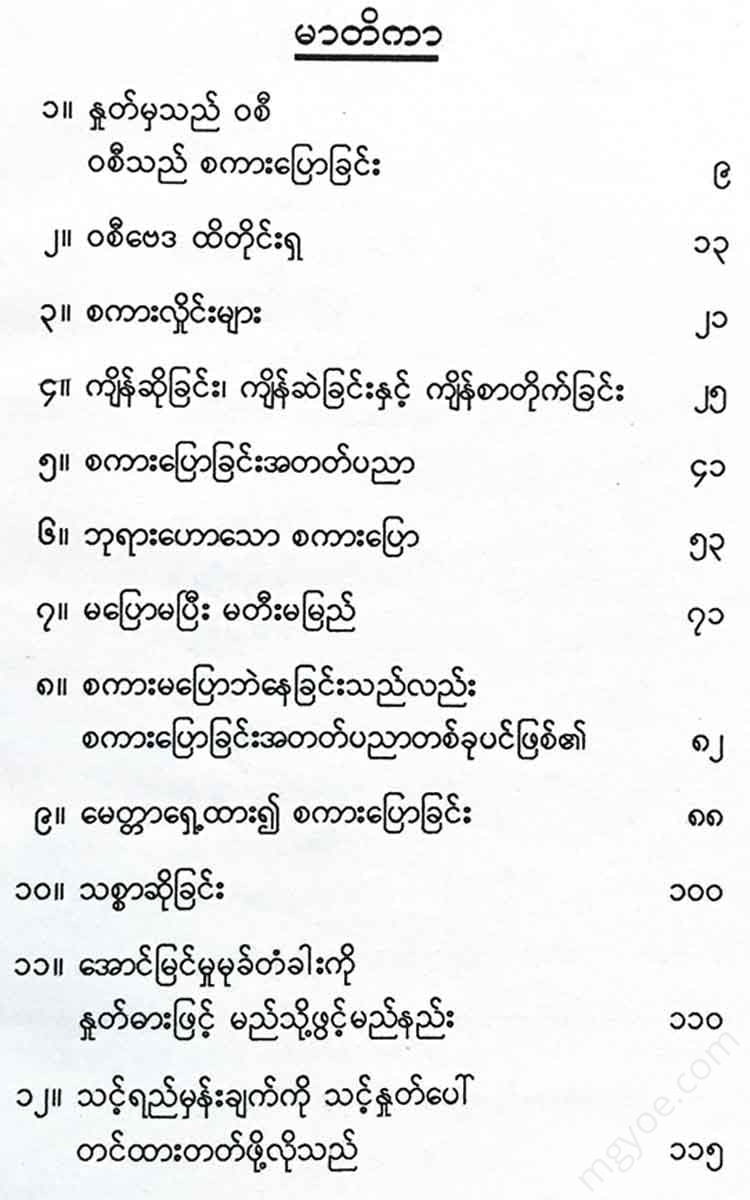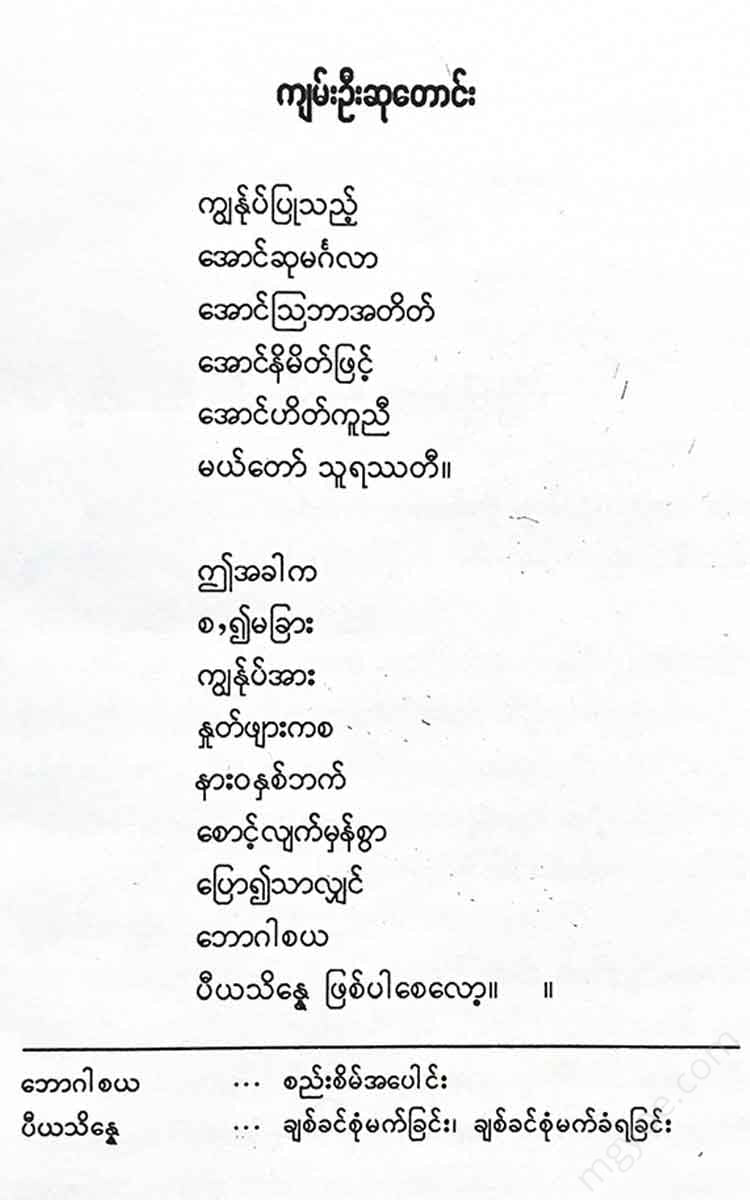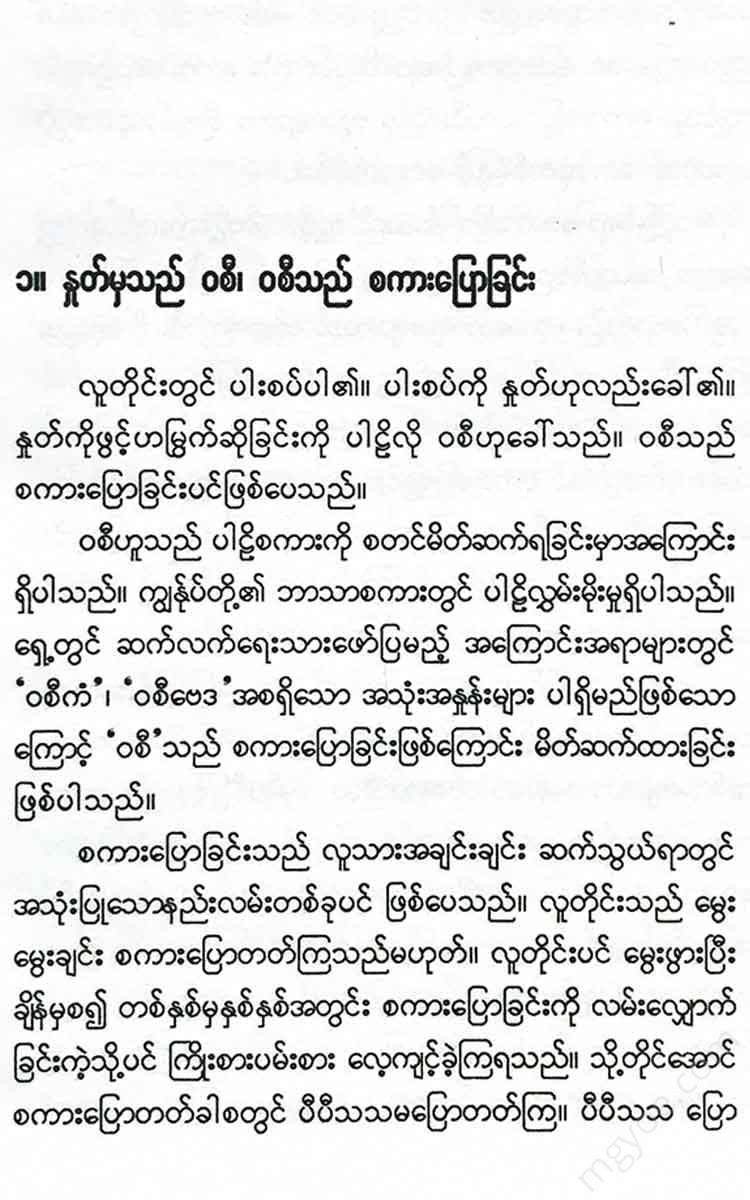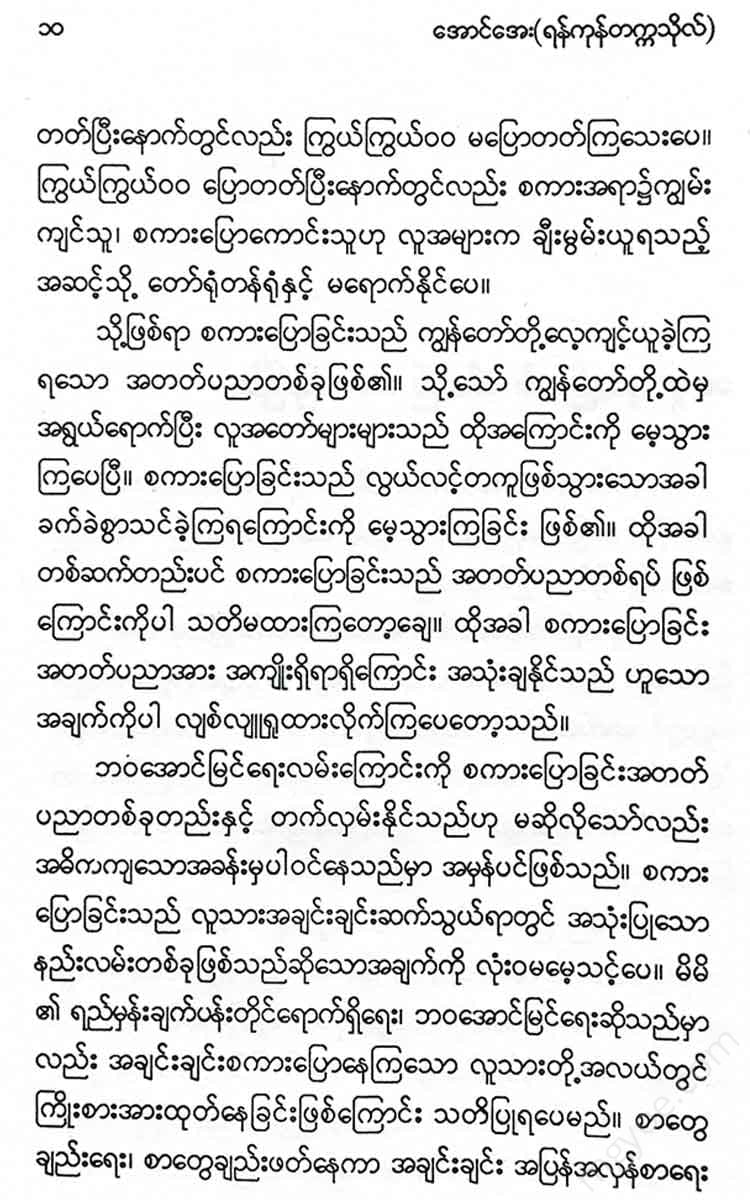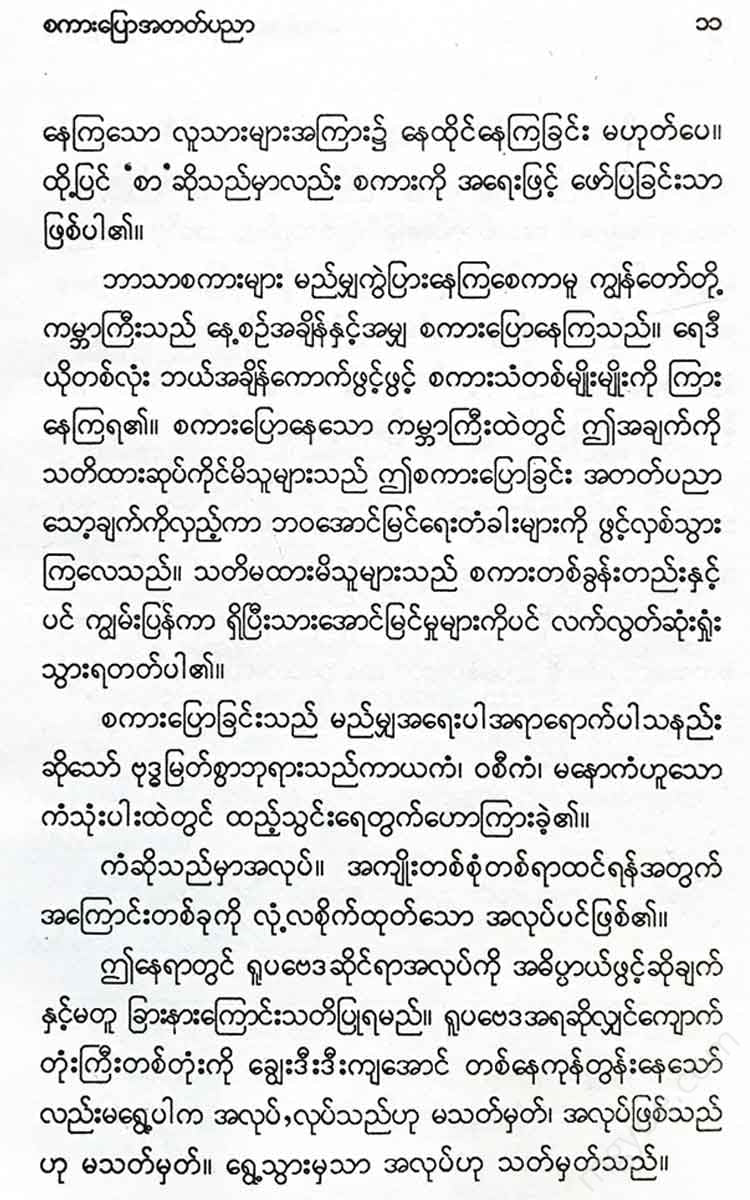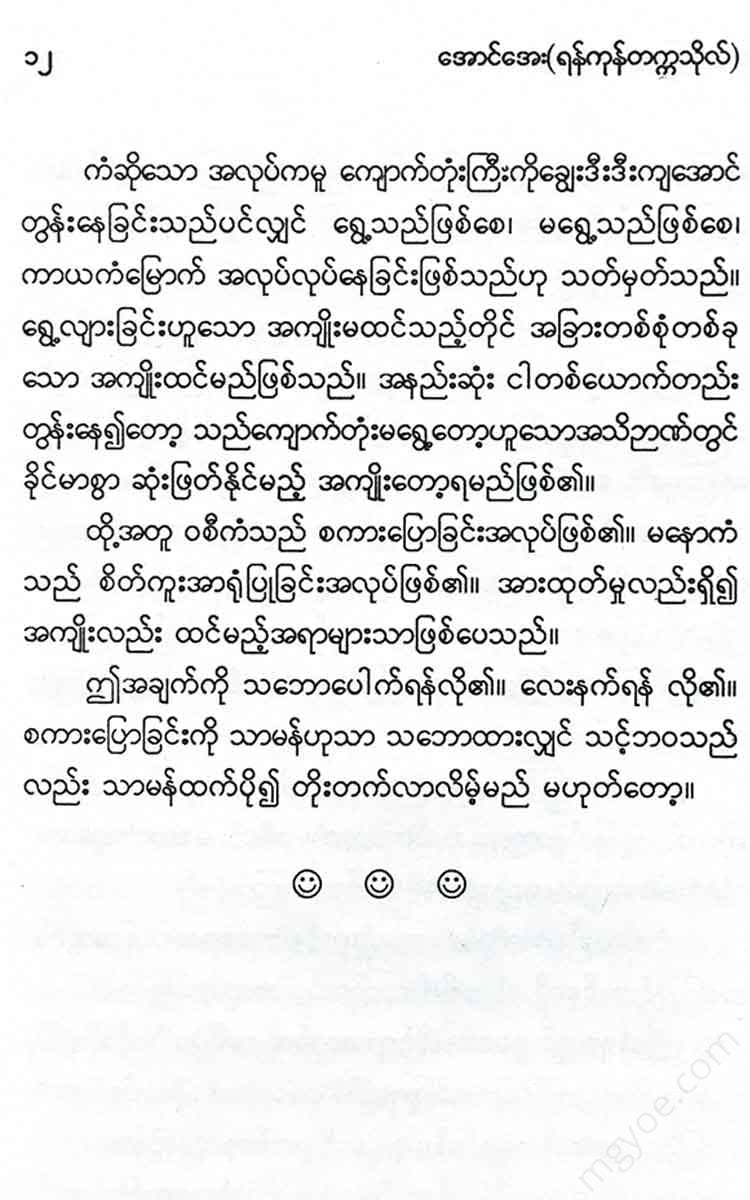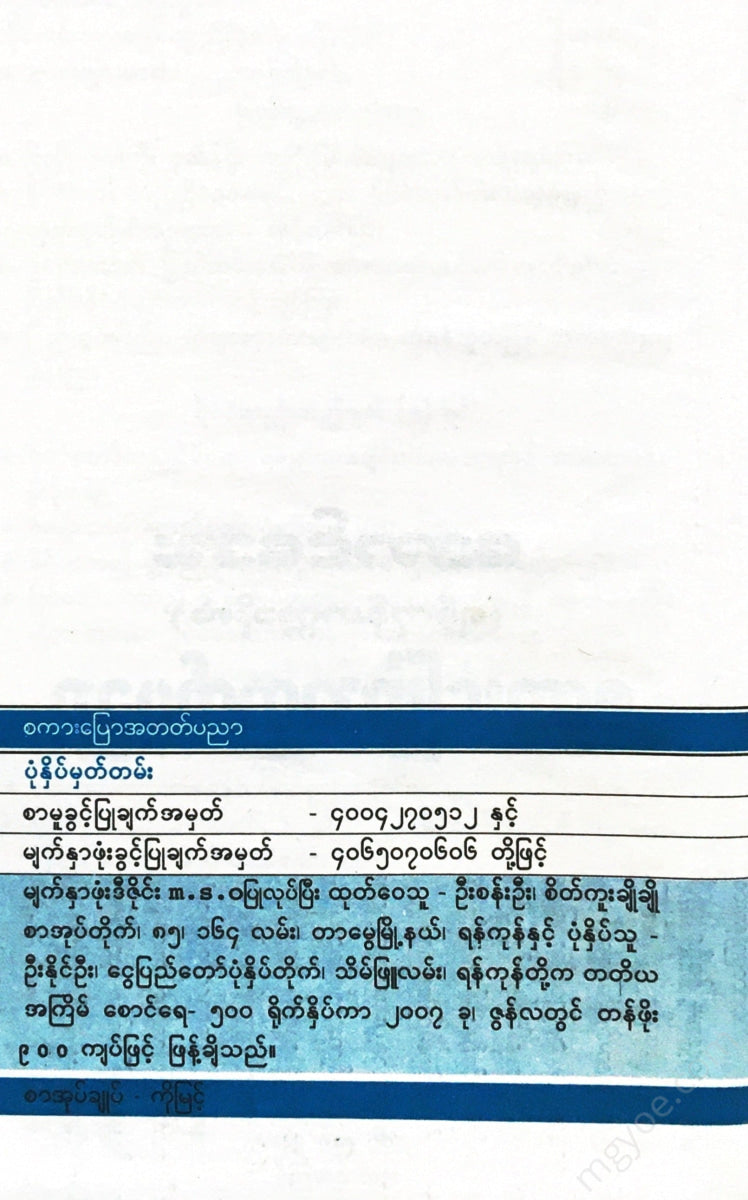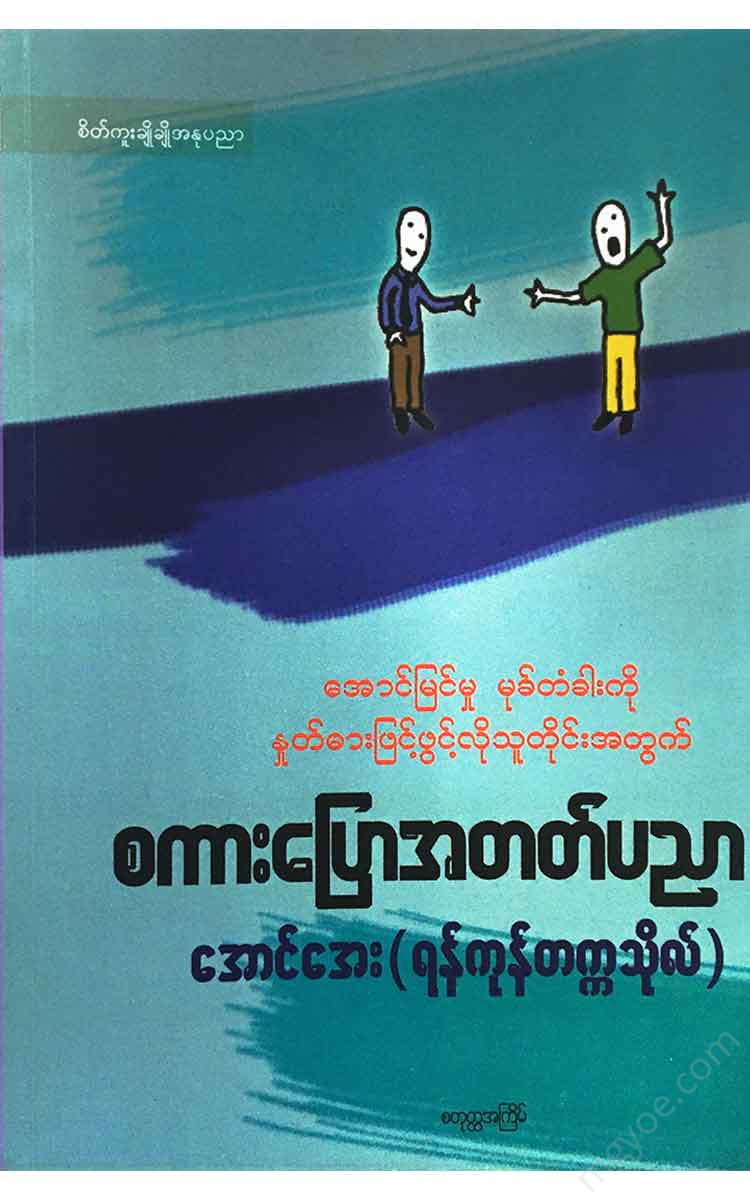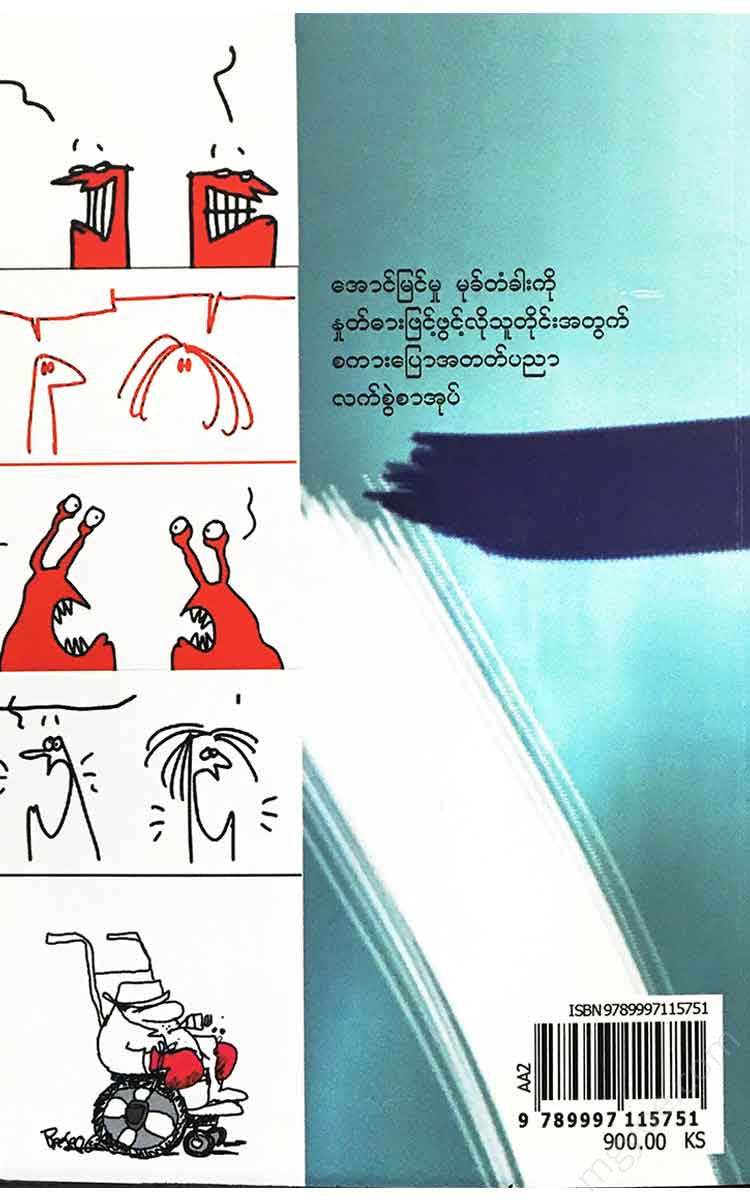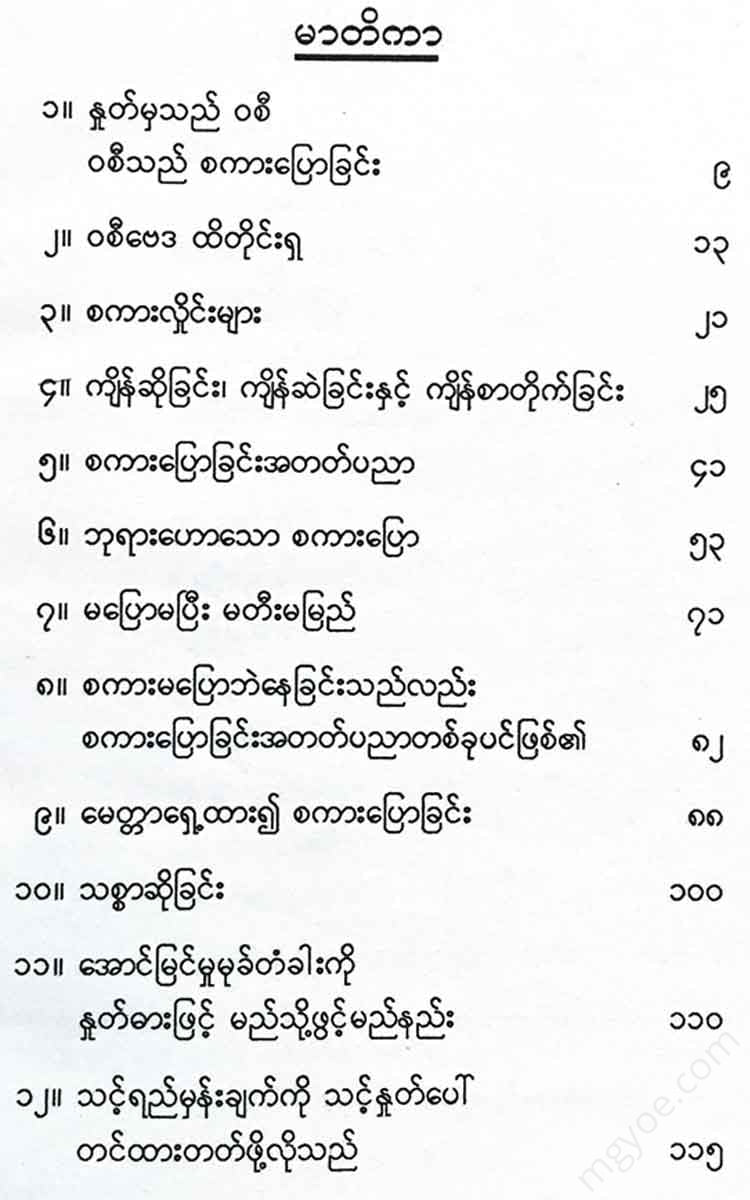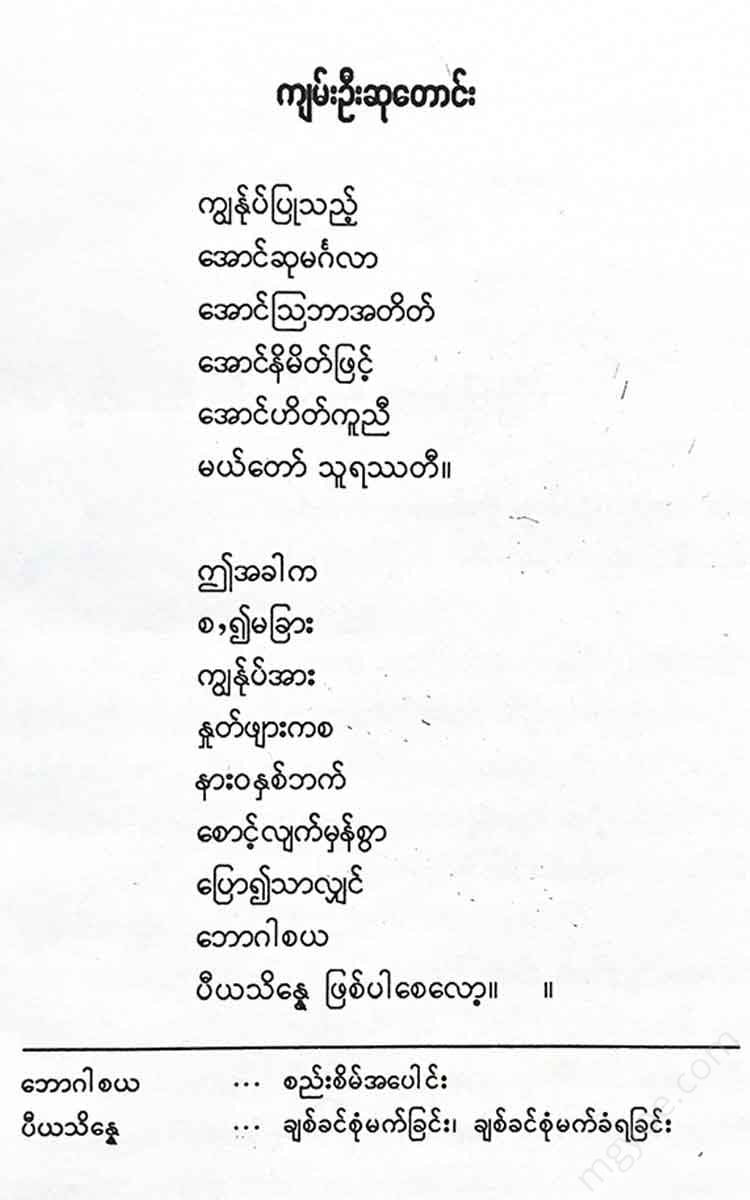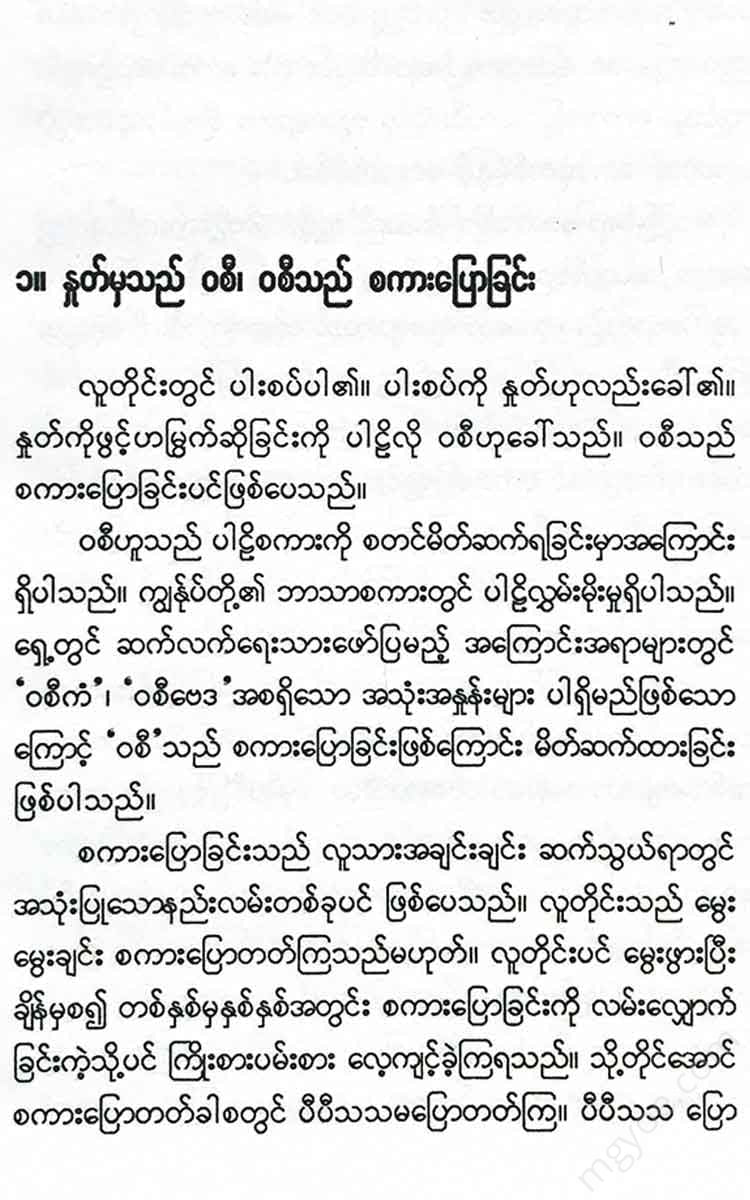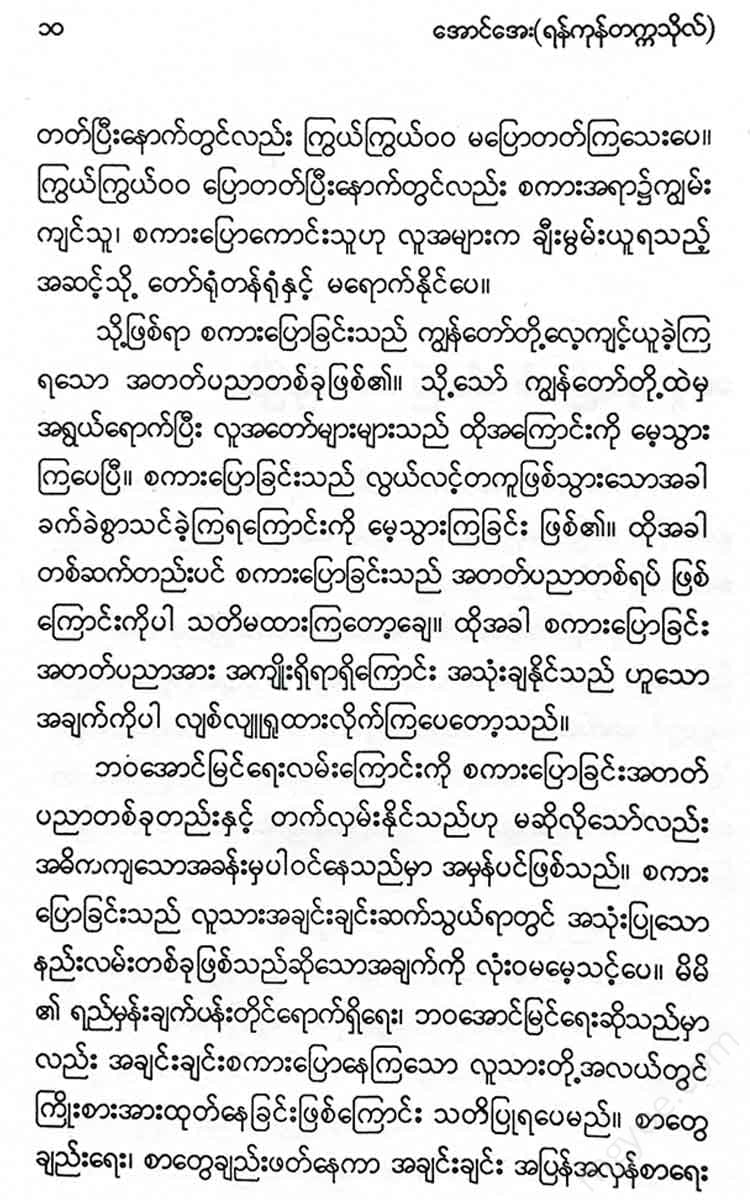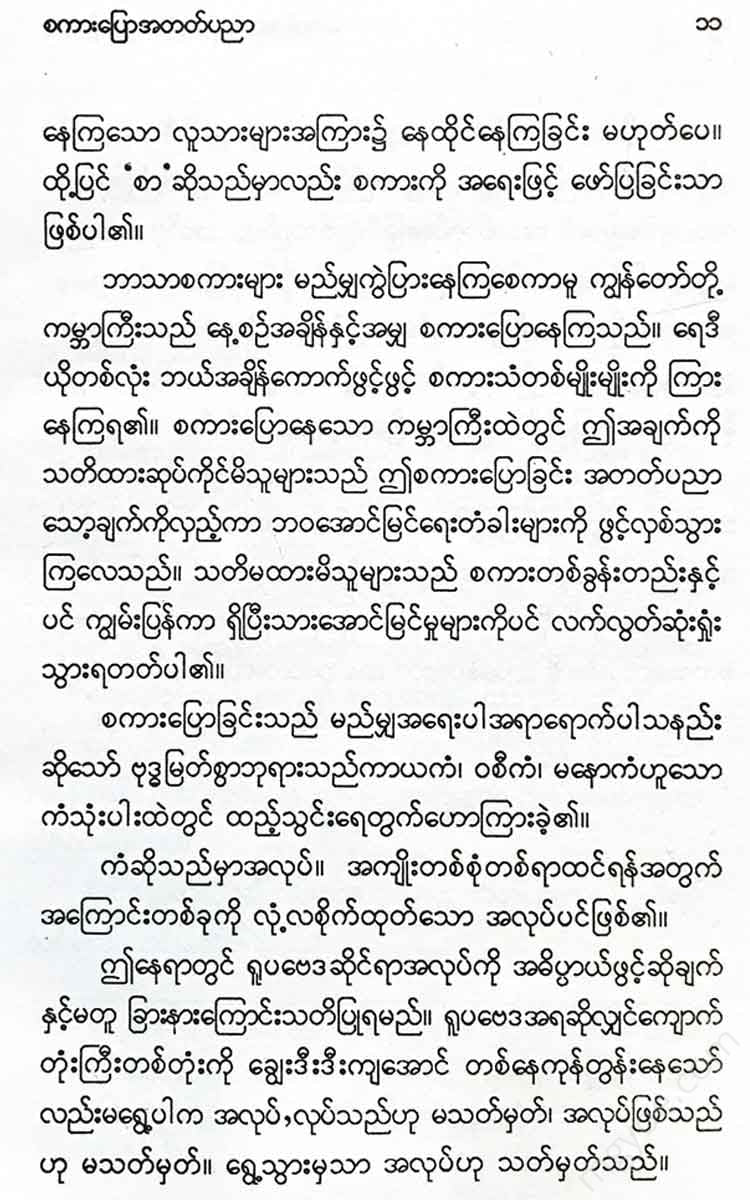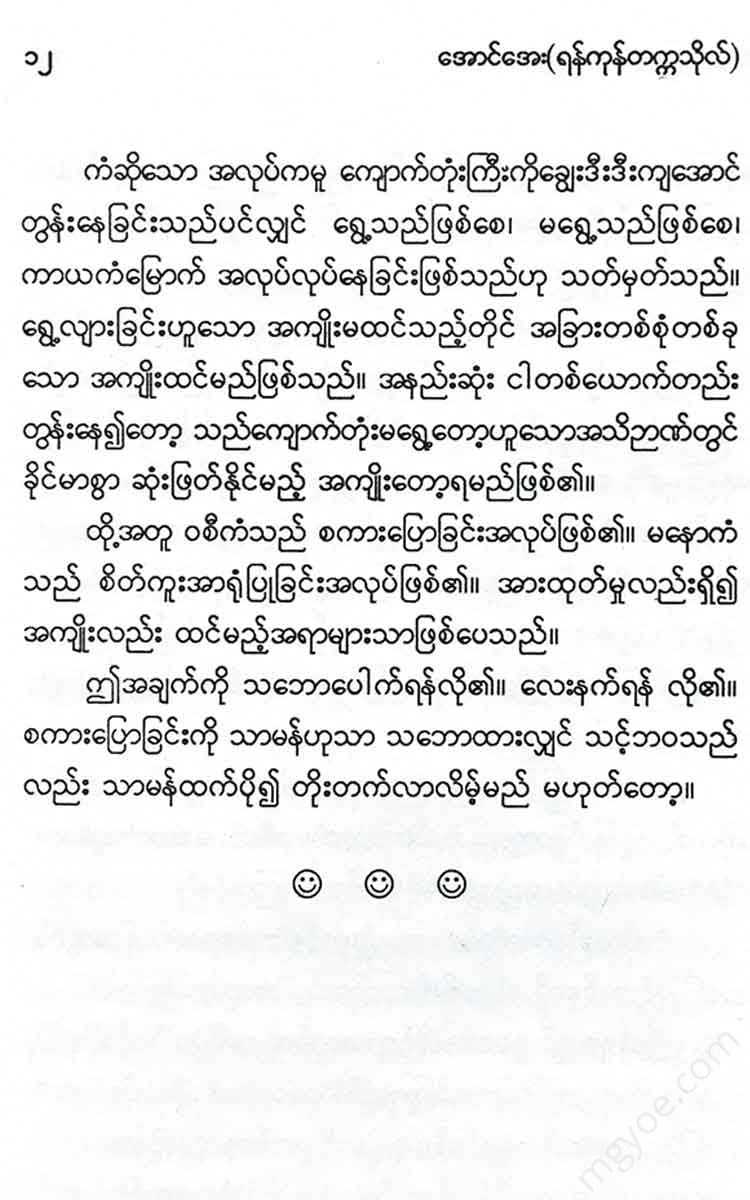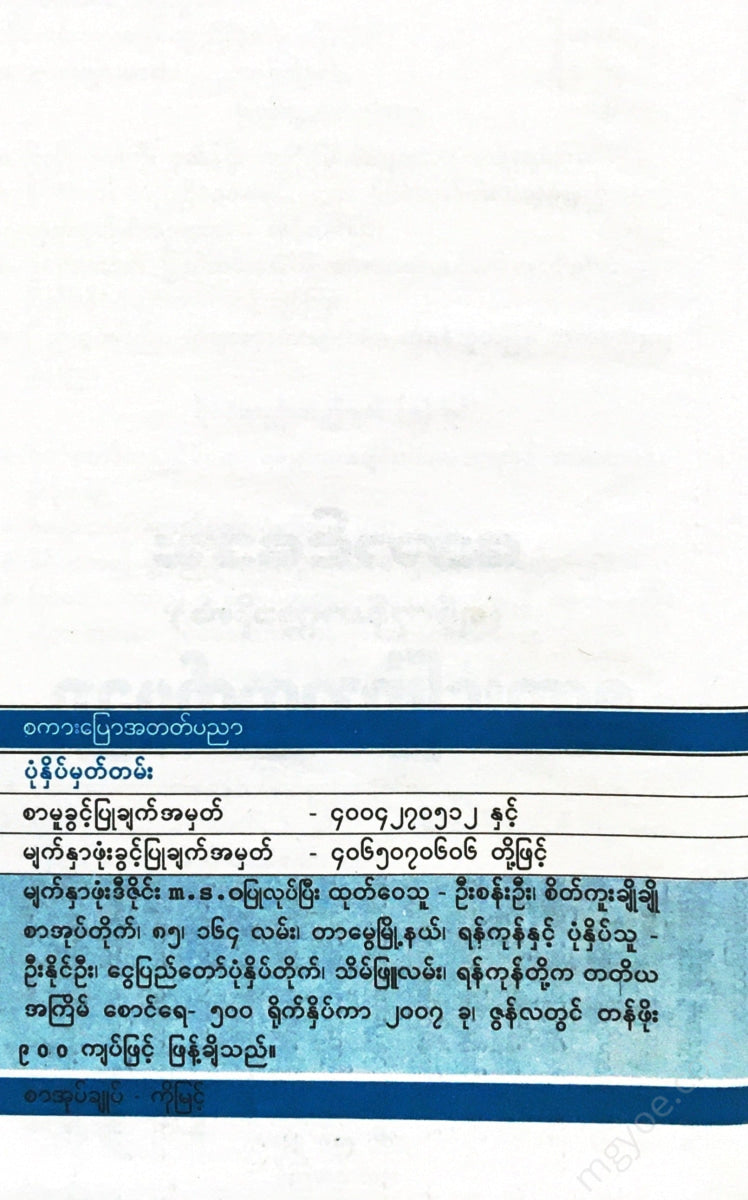စိတ်ကူးချိုချိုစာပေ
Aung Aye (Yangon University) - Public Speaking
Aung Aye (Yangon University) - Public Speaking
Couldn't load pickup availability
2. The science of the universe
Vocabulary is the art of speaking, the art of speaking, and the art of speaking. Vocabulary is a metaphor that reminds us that speaking is as sharp as a sword. Effective. Sharp. It is measured by the edge of a sword. This is a saying that was passed down by the ancients.
Old women are very careful when speaking. They are afraid of what will happen next. There are many evidences that this actually happens.
I would like to share a touching story told by a friend.
My friend's name is Ko Maung Maung. Ko Maung Maung lived with his parents in a small town when he was young. Ko Maung Maung's father was a chief of an office. Ko Maung Maung's father had a close friend, a lawyer. The two families were close friends. The lawyer had a daughter who was the same age as Ko Maung Maung. Both parents had a dream that the two children would support each other when they grew up. However, Ko Maung Maung's mother was a little worried.
“Their family is friendly, simple, and happy, but they are not serious. When they talk, they are casual and don’t seem to think much about the future.”
Ko Maung Maung's mother commented as follows.
Then, an incident occurred that shocked Ko Maung Maung's mother. One Sunday, a holiday, Ko Maung Maung's family was sitting quietly in the front room, chatting. At that moment, a voice came from the porch.
"Brothers and sisters, if you have any leftover rice or vegetables, please share them. I haven't eaten for three or four days."
His father told Ko Maung Maung to go to the kitchen and pick up some rice. His mother went to open the door. Their family was generous in giving and receiving. When the door opened, they found unexpected people. Ko Maung Maung also saw the people coming from the kitchen and stopped preparing to pick up some rice. There was laughter.
The guests were three friends, a family of lawyers. They were laughing so hard at their jokes that they couldn't stop until they were seated in the front living room.
"You really think so, my sister, do you think my voice is similar? Then you can beg me."
The lawyer's wife was still satisfied with herself. Ko Maung Maung's mother was beating her chest.
"I may or may not do it, my sister, who is so good at grammar, please don't try to follow me like that."
"That's just the idea of the elder sister, we don't have any idea. If we become a real beggar after being a beggar, then we will become a real beggar, not just a beggar in the caste."
"They're my sister's dancers, they can do anything to make it look like the character."
"We're just kidding, big sister. We're just kidding about how we look and act. I'm not afraid. Even if I become a beggar, I'll beg. I'm not just stealing and eating other people's things."
"Now... let's try speaking in other languages."
Ko Maung Maung's father interrupted to stop talking.
Unfortunately, that same year, his father's best friend died of a stroke. Ko Maung Maung's family helped as much as they could. However, when the funeral expenses were added to the debt they had accumulated due to their high expenses, the lawyer's surviving wife and daughter could not cope. They sold their farm and house to pay off their debts and moved from one village to another. Ko Maung Maung's family also lost contact with him.
After a few years, Ko Mong Nga Maung went to see the mother of the son in a town. They went from house to house, begging and eating.
Whether or not they have compassion for the family, or lack of compassion, or lack of empathy, is a problem that only concerns Ko Maung Maung.
I would like to discuss the problem of the word "Vasi" that Ko Maung Maung's mother mentioned. We should learn a lesson. Vasi comes from the mind. Speaking is based on the mind. If the mind is the same as the mind, then it is not surprising that Vasi became the same as the word "Vasi". From the mind comes speech, and from speech comes physical karma.
"There are people who say, 'I don't know if I'll ever beg for food, I'll work with my own energy and eat.'"
There are those who say, "I don't want to depend on anyone, I'll just bend my knees."
Good. They will do as they say.
If you encounter a friend who challenges you by saying, "I don't believe in the power of words. These are traditional ideas. Well... I have a strong family background and a stable job. I dare to say it. Now I want to be a beggar. Will it work?", you should refrain from doing so out of kindness.
This friend wants to be considered “modern.” No matter what problems he encounters, he will always stand out as a modern person. Even if he doesn’t become a beggar in his future life, he will face the consequences of becoming a beggar.
There are some traditional ideas that should be rejected, and some that should not be rejected. We should approach them with the attitude of throwing away the old and taking the new, throwing away the fake and taking the real. We should be mindful that without the old, there is no present, without the past, there is no present.
Regarding the impact of verbal abuse, there are cases where curses spoken to oneself can be hurt back. There are also cases where curses spoken to others can be hurt by others.
I would like to share a personal experience where I felt sad every time I thought about something my aunt said.
She has two older sisters. They are also older. One day, the older sister and the younger sister were arguing, and she was arguing. When they couldn't stand it anymore, she got angry.
"Aw...the sisters love each other so much, right? If they love each other this much, if one of them dies, they'll die together, and we'll bury them in a hole."
Soon, the elder sister died of old age. The younger sister died a year later. It was not intentional when the younger sister was buried, but there was no more space in the cemetery, so she had to be reburied in the same place where the elder sister was buried.
The aunt felt sad every time she thought about it. She understood and accepted the meaning of the word and did not speak ill of anyone. This was an unexpected act of cursing and cursing. We will discuss cursing and cursing later.
In discussing the subject of the Vāsi Vedā Hita Tāyā, I am not suggesting that the unfortunate words spoken will inevitably come to pass. There is no need to dwell on the unfortunate words spoken in a moment and become bitter. There is no need to think and worry. Because everyone makes mistakes. In the process of human development, we have sought the truth from mistakes and progressed. Therefore, the Vāsi Vedā Hita Tāyā is presented with the aim of understanding and reflecting on the Vāsi Vedā Hita Tāyā.
The word "Vasi Veda Hita Taina" can also be used for good. In good ways, the word "Vasi Kho" is effective. It is clever.
If we understand this, we should only speak good words. We should speak with a blessing. We should not speak empty, useless, unkind words, whether about ourselves or about others.
